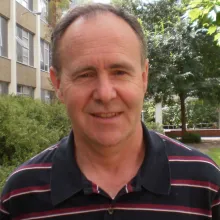
Computational mathematics
The Computational Mathematics research program actively studies theoretical aspects of computational algorithms.
Contact
About
Our group has 6 continuing and 6 contract staff. The group members have wide range of research interests in developing numerical methods for solving various application problems. We focus on algorithm designs, numerical implementation and theoretical analysis.
Capabilities
The group members have long term experience with their research areas. In particular the research of our group addresses the following aspects of computational and applied mathematics:
- Computational PDEs
- Computational topology and algebraic geometry
- Environmental science
- Inverse problems
- Modelling
- Numerical linear algebra
- Optimisation
- Plasma physics
- Theoretical astrophysics
Reasons to work with us
- Our group members have long term experience with their research areas which typically tie with practical applications and government or industrial partners. Examples include fluid dynamics and the River Darling Basin Authority, inverse problems and the Australian Signals Directorate, fusion energy and the Australian Nuclear and Science and Technology Organisation, and seismology and GeoSciences Australia.
- Completed HDR students routinely find employment in top international research agencies (e.g. US Department of Energy), or pursue higher degree studies in world leading universities in US and UK (e.g. Oxford).
- Exposure to broader research challenges through the Mathematics and Computational Sciences Seminar Series, a joint initiative between MSI and Computational Science.
Projects
Members
Convenor
Emeritus
Emeritus Professor
Researcher
Associate Professor / Director of Research ANU-ASD Co-Lab
Associate Professor and Director, Mathematical Data Science Centre
Student
MPhil
PhD
PhD
PhD
PhD
PhD









